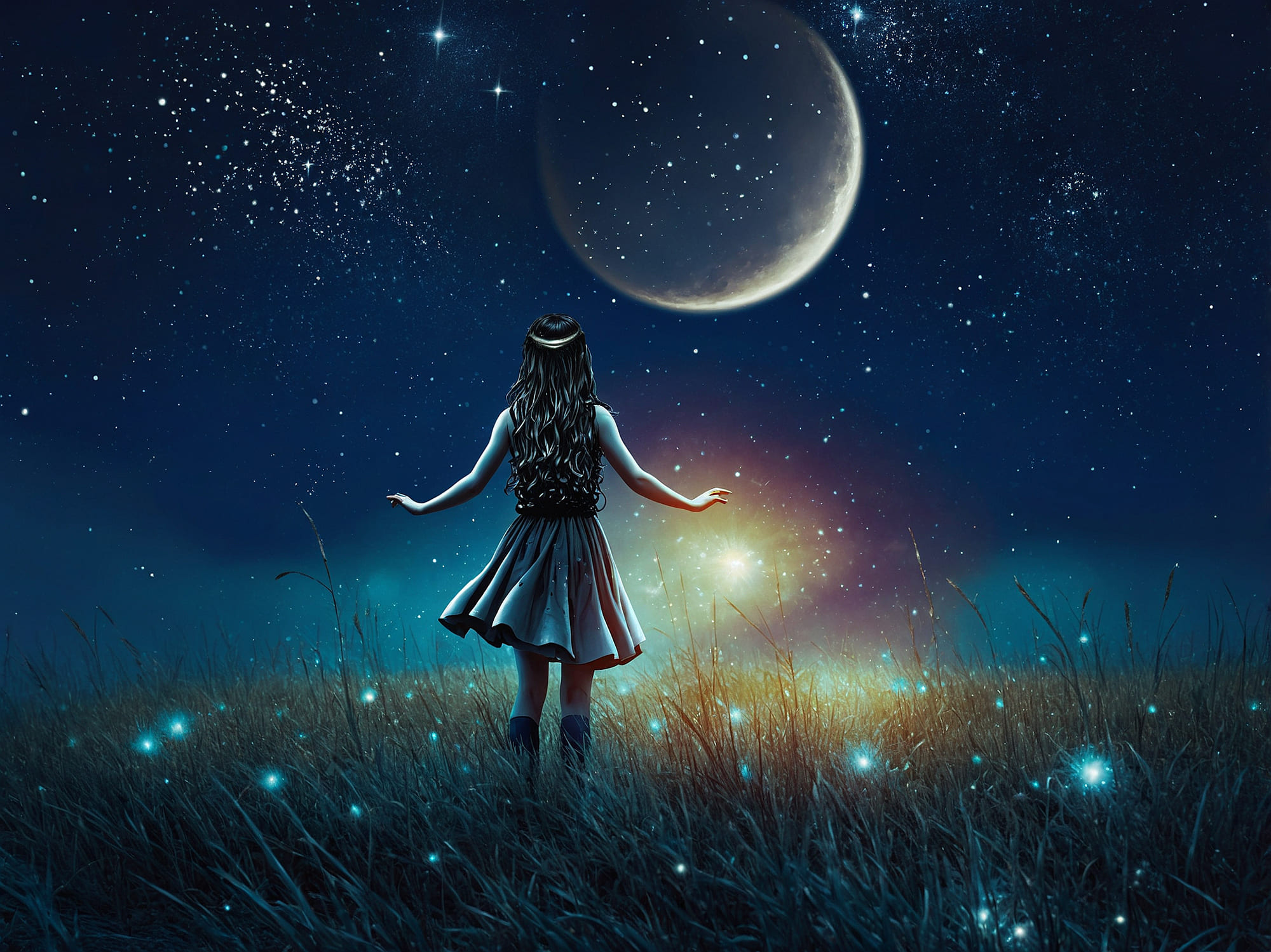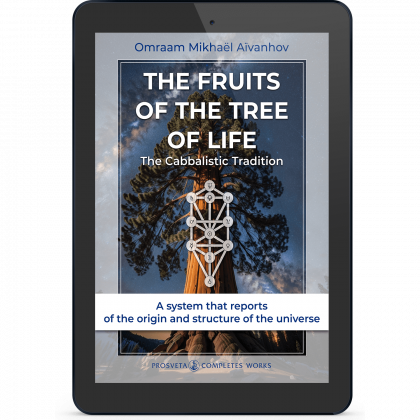The influence of the moon
The moon’s phases affect all creatures.
'Let’s look at an aspect of the moon which has great importance in our daily lives. We say that the moon waxes and wanes. In reality, of course, this is simply a manner of speaking, just as we say that the sun rises and sets. The moon itself is always the same, but we on earth see it waxing or waning depending on its relative position to the sun and the earth. It waxes for fourteen days, and then for another fourteen days it wanes. These phases of the moon produce changes not only in the oceans and in the animal and vegetable kingdoms, but also in the biological, intellectual and psychic life of human beings and even of societies. The moon’s phases affect all creatures. As long as we are on earth and have a physical body, we are necessarily subject to the influence of the sun, the moon and the other planets. Even initiates are subject to these influences, the only difference being that, for them, their effect is not negative. In humans, the seasons complete their cycle not only once a year, but also once every twenty-eight days. For the first fourteen days, while the moon is waxing, human beings are full of energy and activity, and then for the next fourteen days, while the moon is on the wane, they are inclined to be more passive, sleepy and introverted. The lunar cycle takes just twenty-eight days, whereas the solar cycle takes twelve months: twelve times longer.
If you are careful, you can perfectly well continue to work even when the moon is on the wane, but your clarity, intensity and productiveness will be less than during the period of the waxing moon. When the moon is on the wane, particularly in the last few days, it is much more difficult to meditate or fix your mind on luminous ideas and images; you have difficulty in raising your thoughts, you feel somnolent and dull, and all kinds of ideas that have nothing to do with your meditation keep interfering. You may try to overcome these problems, but it is not easy, for the wild animals within you have greater freedom at these times. The important thing is to keep an eye on your children, that is to say, on your divine aspirations, on all that is most precious within you, and keep them out of the reach of those wild animals until it is time for them to go back into their lairs.
One practical conclusion to be drawn from this is that you would do better to wait until the moon is waxing before undertaking any important work or committing yourself to any new activity, because conditions are more favourable then than during the period of the waning moon, when your reserves of energy are in danger of running out. You may wonder why human beings need to be outwardly active and to pour out their energies just when the moon is replenishing its own. They need this outward activity because they need to release the energies that have been accumulating while the moon was waning and emptying itself. You must try to understand this play of the balance of forces.'
'Let’s look at an aspect of the moon which has great importance in our daily lives. We say that the moon waxes and wanes. In reality, of course, this is simply a manner of speaking, just as we say that the sun rises and sets. The moon itself is always the same, but we on earth see it waxing or waning depending on its relative position to the sun and the earth. It waxes for fourteen days, and then for another fourteen days it wanes. These phases of the moon produce changes not only in the oceans and in the animal and vegetable kingdoms, but also in the biological, intellectual and psychic life of human beings and even of societies. The moon’s phases affect all creatures.
The moon’s phases affect all creatures. As long as we are on earth and have a physical body, we are necessarily subject to the influence of the sun, the moon and the other planets. Even initiates are subject to these influences, the only difference being that, for them, their effect is not negative. In humans, the seasons complete their cycle not only once a year, but also once every twenty-eight days. For the first fourteen days, while the moon is waxing, human beings are full of energy and activity, and then for the next fourteen days, while the moon is on the wane, they are inclined to be more passive, sleepy and introverted. The lunar cycle takes just twenty-eight days, whereas the solar cycle takes twelve months: twelve times longer.
If you are careful, you can perfectly well continue to work even when the moon is on the wane, but your clarity, intensity and productiveness will be less than during the period of the waxing moon. When the moon is on the wane, particularly in the last few days, it is much more difficult to meditate or fix your mind on luminous ideas and images; you have difficulty in raising your thoughts, you feel somnolent and dull, and all kinds of ideas that have nothing to do with your meditation keep interfering. You may try to overcome these problems, but it is not easy, for the wild animals within you have greater freedom at these times.
The important thing is to keep an eye on your children, that is to say, on your divine aspirations, on all that is most precious within you, and keep them out of the reach of those wild animals until it is time for them to go back into their lairs.
One practical conclusion to be drawn from this is that you would do better to wait until the moon is waxing before undertaking any important work or committing yourself to any new activity, because conditions are more favourable then than during the period of the waning moon, when your reserves of energy are in danger of running out. You may wonder why human beings need to be outwardly active and to pour out their energies just when the moon is replenishing its own. They need this outward activity because they need to release the energies that have been accumulating while the moon was waning and emptying itself. You must try to understand this play of the balance of forces.'




